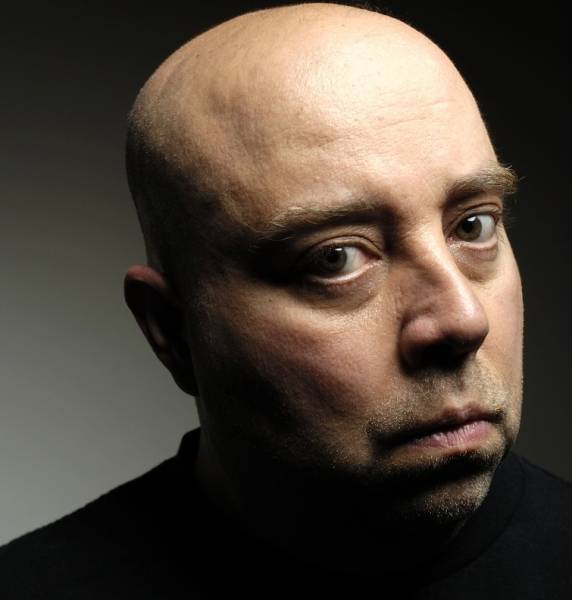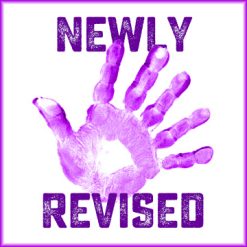|
BUSINESS: COPYRIGHTS Why YouTube Takes Down Your Demo, Leaves Up Pirated Content ... And What You Can Do About It February 5, 2016 by David H. Lawrence XVII Voice Actor & Coach VO2GoGo.com  Since
Napster gave the world a taste of easy, media-hyped piracy, a
generation of users has felt no need to respect intellectual property
rights. Since
Napster gave the world a taste of easy, media-hyped piracy, a
generation of users has felt no need to respect intellectual property
rights. Google’s video site, YouTube (or as some pronounce it, YOU chube), has gone to great lengths to make sure its producer partners are protected from unauthorized performance of their works. Sometimes, though, your acting reels will get caught in the middle, even though you’re perfectly allowed to use your scenes from copyrighted works in your acting reels. And sometimes YOUR intellectual property is being pirated and illegally shown on YouTube. Here's how this happens, and how to remedy each situation. IF YOUR DEMO IS REMOVED ... You’ve worked hard on your demo reel, following all of the tips and techniques we’ve discussed in the ActingAnswers.com article on the topic of world class reel production. Everything’s set - you’re about to let the world know about it, and you open your email inbox to find a takedown notice from YouTube. What? The notice I got when I put my demo reel up on YouTube read: Your video has been identified and removed from public display on YouTube because you may not have the necessary permission to make it available on YouTube. The material identified in your video, the person claiming ownership of the material, and the policy they have designated for its use on YouTube are detailed below.That's pretty ominous, and is enough to scare an actor into leaving well enough alone and just use the video on their own website, hoping the powers that be at CBS don’t find them. KNOW YOUR RIGHTS You should know your rights, and act accordingly. You have the right, under the Fair Use tests in the US Copyright Code, to use clips from your work in your reel, without having to secure any permission from the networks or studios you do your work for. So how does YouTube even know I did The Unit (it’s one of the scenes in my reel)? Because YouTube has had so many problems with people knowingly and unknowingly posting videos that contain copyrighted works, they’ve worked with producers like the networks and studios that release films theatrically (your customers) to develop software that looks for signatures in works registered with YouTube. WHAT HAPPENS ... For example, in the case of a video involving episodes of television and copies of films, the producer sends the works to YouTube, which stores them in a database. Then, when videos get posted by YouTube users, the video and audio are both scanned for the same content in the works in their database. When they find a match, the authorities are alerted and the notices get sent out. YouTube shoots first and asks questions later, removing the potentially offending videos from public view. Most of the time, if someone is putting up copy of copyrighted works, this is perfectly normal and we should all be glad that YouTube is helping to defend the rights of the owners of copyrighted works. YOU AREN'T THE BAD GUY! But your use of a scene or two from your episode of a television show or a movie can be a temporary casualty of this war against piracy. You aren’t the bad guy here. You’re a party to the production of the piece, and your use of the scenes you are in pass all four of the Copyright Act’s fair use tests (Section 107 of Title 17 of the US Code): 1.The purpose and character of your use of the copyrighted work must advance knowledge or the progress of arts, or be for non-profit or educational use. You are demonstrating your participation in the work, so this is covered. 2. The nature of the copied work must have certain values which are judged on a case by case basis, none of which you are even close to when using it in your performance demo. 3. The "amount and substantiality” of the work is clear – you’re only using a small amount of the work (since your demo should only be a minute or two long, you’ll need to use just seconds of the scene you’re in), and that passes the test that you’re not simply re-publishing the entire episode or film. 4.The final test is whether or not your use of a piece of the copyrighted content could negatively affect the work’s value in the marketplace. You pass this, as you’re not selling or offering your demo as a replacement for any of the shows you use in it. HOW TO REMEDY Thankfully, YouTube is also on your side in this case, and you can easily remedy the situation. Remember the option above in the ominous letter that offers you the opportunity to "Dispute Claim”? That’s exactly what you do, dispute the claim. YouTube even offers you a simple link to click on that takes you the "Dispute Claim” form on their website. All you have to do when you get to that page is to fill out the form, and tell YouTube why you shouldn’t be subject to their takedown decision. COPY THIS EXAMPLE Here’s some language you can copy and paste from right into the "Reason for Dispute” or "Dispute Explanation” text box on YouTube: I am an actor. The video in question is a compilation of different scenes in which I am featured. This video does not violate US Copyright code, as it passes all four tests for fair use under Section 107 of Title 17 of the US Code. Please restore the video to public view. Thank you.You may never hear from YouTube on issues like this, especially if a human being intercepts the takedown notice to you and looks at your video. But now you know what to do should you be tapped for copyright infringement. IF YOUR WORK IS PIRATED ... But what happens when you're on the other end of the equation: YOUR intellectual property is being pirated, and nothing seems to be done about it? It happened recently to a client of mine, voice actor and audiobook narrator Tracy Elman. (For details, please see Stop, Thief! My Audiobooks Were Copied And Posted On YouTube. What To Do.) To remedy this, simply notify YouTube, just like CBS did in the above example. If it's your property, and someone's pirating it, just use the Report menu item on any video you feel is in violation. In the Report dialog box, there's a choice for Infringes my Rights, and a sub menu choice for Infringes my Copyright. You'll be given an explanation box at some point in the process. Here's what to write: This video/channel/playlist (pick one) is showing intellectual property that does not belong to them, it belongs to me. Here's the original:(link to your original). Please remove this from the system.And that's it! Watch for YouTube to take action. -------------------- ABOUT DAVID After a 30 year career in radio, David H. Lawrence XVII moved to television, and has been seen on ABC's epic series LOST, CBS' legendary CSI, The Mentalist and military thriller The Unit, NBC's spy comedy Chuck, Good Luck Charlie and ANT Farm on Disney, Touch and The Finder on FOX, and is best known as the creepy evil puppet master Eric Doyle on NBC's smash hit Heroes. His film career includes on-camera and VO work on Men in Black III, Pizza Man, The Changeling, The Hulk, Iron Man, Percy Jackson, Unstoppable, Too Big to Fail, A Special Relationship and countless others. Lawrence also helps actors create voice over careers with his award winning VO2GoGo voice consultancy, and has been BACK STAGE's Readers' Choice for Favorite VO Teacher and Favorite VO Demo Producer for four years in a row. He also teaches regular VO classes monthly in Los Angeles and online, and voicework workshops at various studios around Los Angeles. He has also voiced over 100 audiobooks, and teaches specialized courses in audiobook production, with a concentration on ACX and Audible work, and teaches the ACX Master Class. Email: davidlawrence@gmail.com Web (acting): http://davidhlawrencexvii.com Web (voice over coaching): http://vo2gogo.com Web (ACX Master Class - new class registration deadline is 9 pm tonight, February 5, 2016): http://acxmasterclass.com |
Tell Us What YOU Think!
Please Note: Since we check for spam, there will be a slight delay in the actual posting of your comment.
Comments (1)
Tracy Elman
2/5/2016 at 2:54 PM
Excellent David, I will keep these words in my files. Thank you for your help and this great article.





.png)




click for new article alerts